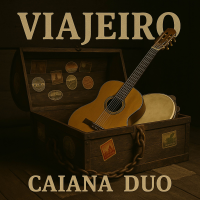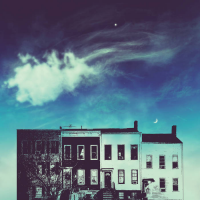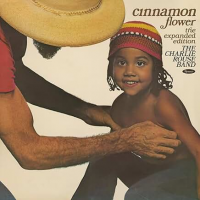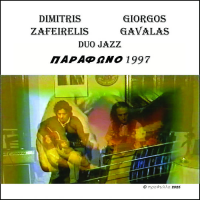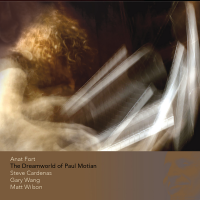Home » Jazz Articles » Multiple Reviews » Dave Liebman: Live / As Always and Quest for Freedom
Dave Liebman: Live / As Always and Quest for Freedom

In the twelve months since autumn 2009 alone, Liebman has been spotted in freer terrain, collaborating with another active saxophonist,

Evan Parker
saxophone, sopranob.1944

Michael Stephans
drumsb.1945

Marc Copland
pianob.1948

John Abercrombie
guitar1944 - 2017

Drew Gress
bassb.1959

Billy Hart
drumsb.1940
Two albums featuring his longstanding Dave Liebman Group cover a 15-year period, from the unearthed 1995 performance, Live at MCG (MCG Jazz, 2009), to his more recent and distinctly personal tribute, Turnaround: The Music of

Ornette Coleman
saxophone, alto1930 - 2015

Jay Anderson
bassb.1955

Adam Nussbaum
drumsb.1955
There are further reissues in the works, most notably with his late 1980s/1990s group Quest, also featuring another old friend, pianist

Richie Beirach
pianob.1947
And so, with Liebman's count for the 2009/2010 year already approaching ten, the release of two more albums, nearly back-to-back, are all the more remarkable for their continued demonstration of the breadth and depth of Liebman's skills as a writer, and as a saxophonist who has, in a reverse twist to most, made the soprano his main axe and the tenor a somewhat secondary one, though he's no less capable on the bigger horn. Perhaps the most distinctive soprano voice of his generation, coming from the post-" data-original-title="" title="">Joe Coltrane world, but with a warmer and less nasally tone, Liebman's expressionistic temperament is put to the test on not one, but two big band recordings: one, featuring his own New York-based big band, under the direction of Gunnar Mossblad and featuring members of his smaller Dave Liebman Group; the other, a collaboration with Beirach and Germany's HR Big Band. Hearing the two discs side-by-side demonstrates how music from, for the most part, one pen can be interpreted in so many different ways, and how aesthetic differences can turn two albums that, by all rights, ought to sound somewhat similar, into two very different experiences.
 The Dave Liebman Big Band
The Dave Liebman Big BandLive / As Always
MAMA Records
2010
There's a comfortable chemistry with Liebman's big band that also provides a consistent voice on this set of six Liebman originals that date as far back as one of his first compositions, the more centrist, fourths-based "A Bright Piece," and move forward to the more contemporary "Anubis," which often makes its way into Dave Liebman Group set lists, including its stunning, balls-to-the-wall set in Ottawa back in 2008.
First recorded on one of the group's best studio dates, Conversation (Sunnyside, 2003), "Anubis" rarely isn't a tour de force, but here, expanded by trumpeter

Scott Reeves
tromboneb.1950
The definitive, mid-eastern 5/4 riff that so defines the essence of "Anubis" builds gradually, with Charles Pillow's oboe solo positioned in a curiously distant place in the mix, yet still a powerful early feature that leads to a surprising (in this context) synth solo from big band keyboardist

Jim Ridl
piano
Pat Martino
guitar1944 - 2021

Vic Juris
guitar1953 - 2019
Elsewhere, Mossblad's arrangement of "Philippe Under the Green Bridge"—first heard on Liebman's understated duo record with ex-Liebman Group keyboardist

Phil Markowitz
pianoMuch as

Dave Holland
bassb.1946

Tony Marino
bass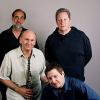
Marko Marcinko
drumsAs much as the large ensemble's chemistry is predicated on the consistency of Liebman's smaller Dave Liebman Group, so, too, does maintaining a regular line-up for this larger group work to its advantage, as it winds its way through knotty arrangements like Guri Agnon's expansion of "Turn It Around," a Liebman piece from the early 1990s that, inspired by the saxophonist's work with drum icon

Jack DeJohnette
drumsb.1942
 Richie Beirach & Dave Liebman
Richie Beirach & Dave LiebmanQuest for Freedom
Sunnyside Records
2010
From the opening of pianist Richie Beirach's"Pendulum"—the title track to the 1978 Artists House album of the same name, more recently collected into a staggering three-disc box set that expands on the original album's four tracks by including the entire set of recordings made at New York's legendary Village Vanguard on Mosaic Select 32: Pendulum Live at the Village Vanguard (Mosaic, 2008)—it's clear that Quest for Freedom may be also be a big band album, but that definition is just about all it shares with Live / As Always. It's not just that it's a different big band either. Instead, it's the immediacy of Beirach's intro, building from a trade-off between upper and lower registers to a more compact set of voicings that set the tone for an album that, when it swings, swings much harder and, with the incredible telepathy shared by the pianist and Liebman, is driven to greater heights of power and exhilarating electricity.
In the hands of arranger

Jim McNeely
composer / conductorb.1949
It's no surprise, then, that "Pendulum" comes from a live recording in Frankfurt, from which the set closer, the equally incendiary "The Sky is the Limit," is also culled. What's surprising, however, is that this is not a tune from either the Liebman or Beirach songbook. Instead, this comes from McNeely's pen—along with "Pendulum" the only other non-Liebman track—and, proves just how in tune the arranger is with the combination of Liebman's inherent, post-bop expressionism and Beirach's distinctive blend of jazz harmonies with the classical language of more outward-thinking composers who spanned the 19th and 20th centuries, an approach that's resulted in the pianist's nickname, "The Code." Where "The Sky is the Limit" differs, however, is its greater compositional complexity, "Pendulum," at its core, a relative sketch of a piece that McNeely astutely expands for this large ensemble. Instead, "The Sky" covers a wide swatch of tempos and grooves, with the horns moving from vivid counterpoint to rich harmonies in support of an early solo from Liebman that's not surprising in its depth of invention, but is in its ability to feel like far more than the more common cathartic outpouring of players who lack the Liebman's ability to think long-form, and structure his solos so that they combine powerful emotion with a remarkable narrative sense.
Beirach, too, possesses this rare ability to think in grander terms without losing the focus required to make a solo breathe—feeling like spontaneous composition rather than a series of random ideas loosely drawn together—with his solo on the balladic "Port Ligal" an example of more subdued invention. He's also a brilliant context-setter, with his opening to Liebman's equally subdued "Vendetta" a dark portent of his duo with the saxophonist, where their shared instincts allow them to be pliant with time, before a reduced version of the big band enters for a largely through-composed piece that only features a brief soprano solo at its end.
The two powerhouse live tracks contrast sharply with the five arrangements of Liebman tunes—recorded in a Frankfurt studio—that bookend the disc. Largely darker, more softly colored and understated in tone, these tunes wrap equally around the album's centerpiece, Liebman's haunting "WTC" (three on either side), giving the album its very specific and unique arc. The only track not arranged by McNeely (instead, by Heiner Schmidt), "WTC" is an imaginative expansion of what originated as a duo piece for piano and saxophone on Liebman's 2002 collaboration with Marc Copland, Bookends (HATology, 2002). Here, however, Copland's softer impressionism is replaced by Beirach's greater immediacy...and intrinsic energy. Beginning with Liebman's wooden flute before moving to soprano, it's a stunning and disturbing evocation of the events of September 11, 2001, made all the more vivid with HR's broader palette. It's no coincidence that it forms the album's centerpiece, as the mood of the album gradually reflects its title and finds its way to the greater optimism of Liebman's "En Fin" and, finally, McNeely's buoyant but still knotty and, at times, oblique "The Sky is the Limit."
Two big band albums featuring the same soloist and material largely from the same composer, yet two very different recordings that, rather than emphasizing their shared commonality, celebrate the remarkable breadth of an artist who, in 2010 approaching 65, is busier than he's ever been, with both new projects and the renewal of old friendships on reunion projects like Quest and Lookout Farm. Increasingly difficult as it is to keep up with his recorded output and touring schedule, it's harder still to imagine how Liebman maintains the energy required to be seemingly relentless in his time spent on the road and in the studio, and both Live / As Always and Quest for Freedom find the veteran saxophonist—along with, on Quest, old friend Beirach—at the very top of his game.
Tracks and Personnel
Live / As Always
Tracks: A Bright Piece; As Always; Anubis; New Breed; Philippe Under the Green Bridge; Turn It Around.
Personnel: Dave Liebman: soprano saxophone, wooden flute; Gunnar Mossblad: director, alto and soprano saxophone, flute, clarinet; Charles Pillow: alto saxophone, oboe, flute; Dave Riekenberg: tenor saxophone, flute, clarinet; David Lown: tenor saxophone, clarinet; Jay Brandford: baritone saxophone, bass clarinet (1, 2, 4, 6); Chris Karlic: baritone saxophone, clarinet (3, 5); Danny Cahn: trumpet, flugelhorn; Bob Millikan: trumpet, flugelhorn; DaveBallou: trumpet, flugelhorn; Patrick Dorian: trumpet, flugelhorn; Tim Sessions: trombone; Scott Reeves: trombone, alto flugelhorn; Sam Burtis: trombone; Jeff Nelson: bass trombone; Jim Ridl: piano, synthesizer; Vic Juris: guitar; Tony Marino: bass; Marko Marcinko: drums.
Quest for Freedom
Tracks: Pendulum; Jung; Vendetta; WTC; Port Ligat; Enfin; The Sky is the Limit.
Personnel: Richie Beirach: piano; Dave Liebman: soprano saxophone, wooden flute; Jim McNeely: conductor, arranger (1-3, 5-7); Heinz-Dieter Sauerborn: alto saxophone; Oliver Leicht: alto saxophone; Tony Lakatos: tenor saxophone; Julian Arguelles: tenor saxophone; Rainer Heute: baritone saxophone; Buon Watson: trumpet; Thomas Vogel: trumpet; Martin Auer: trumpet; Axel Schlosser: trumpet; GЁ№nter Bollmann: trombone; Peter Feil: trombone; Christian Jaksj?: trombone; Mnafred Honetschl?ger: bass trombone; Peter Reiter: piano; Martin Scales: guitar; Thomas Heidepriem: bass; Paul H?chstadter: drums; Heiner Schmitz: arranger (4).
Tags
Comments
PREVIOUS / NEXT
Support All About Jazz
 All About Jazz has been a pillar of jazz since 1995, championing it as an art form and, more importantly, supporting the musicians who make it. Our enduring commitment has made "AAJ" one of the most culturally important websites of its kind, read by hundreds of thousands of fans, musicians and industry figures every month.
All About Jazz has been a pillar of jazz since 1995, championing it as an art form and, more importantly, supporting the musicians who make it. Our enduring commitment has made "AAJ" one of the most culturally important websites of its kind, read by hundreds of thousands of fans, musicians and industry figures every month.




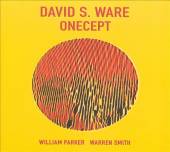



 Buy Now
Buy Now

